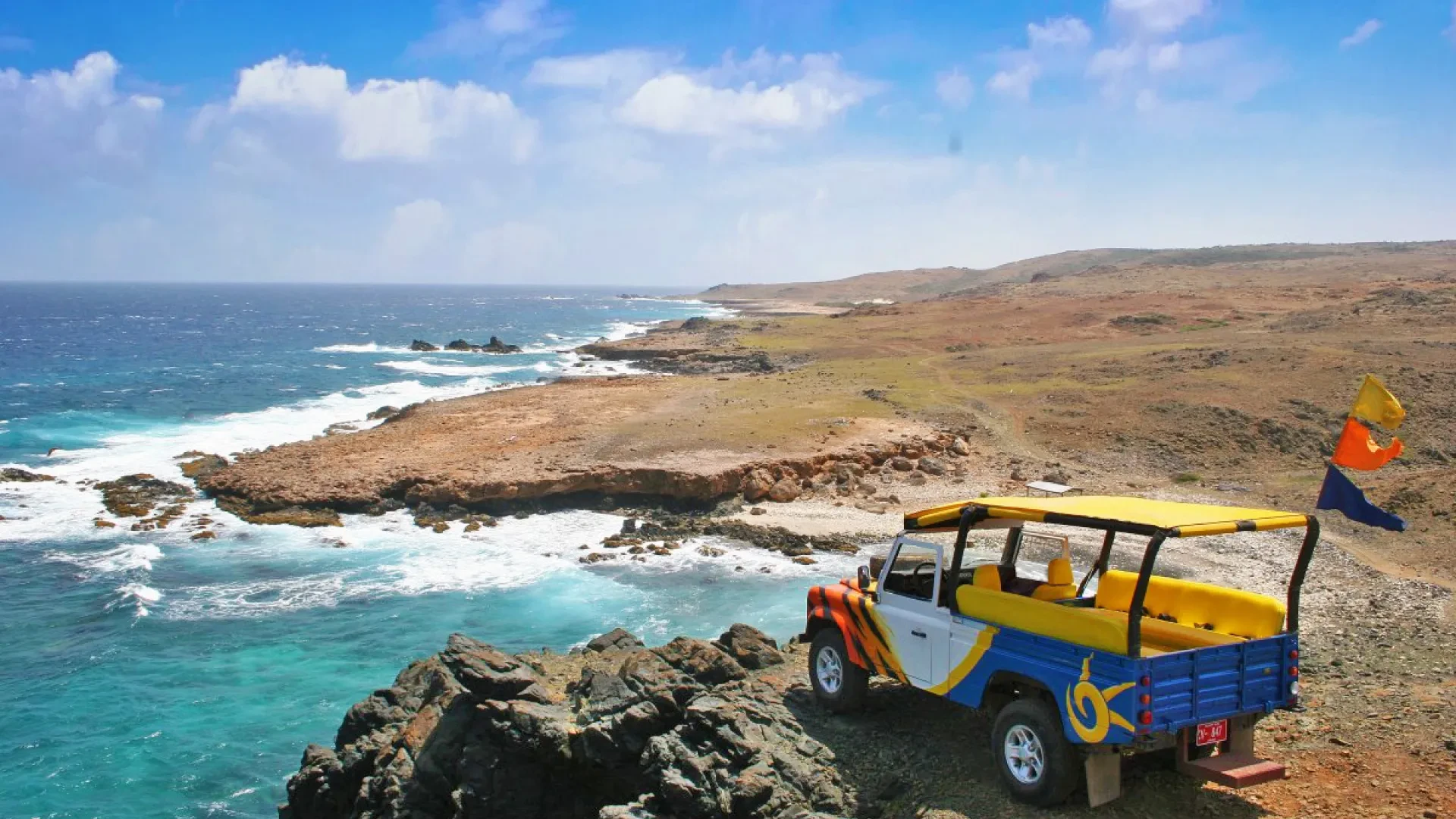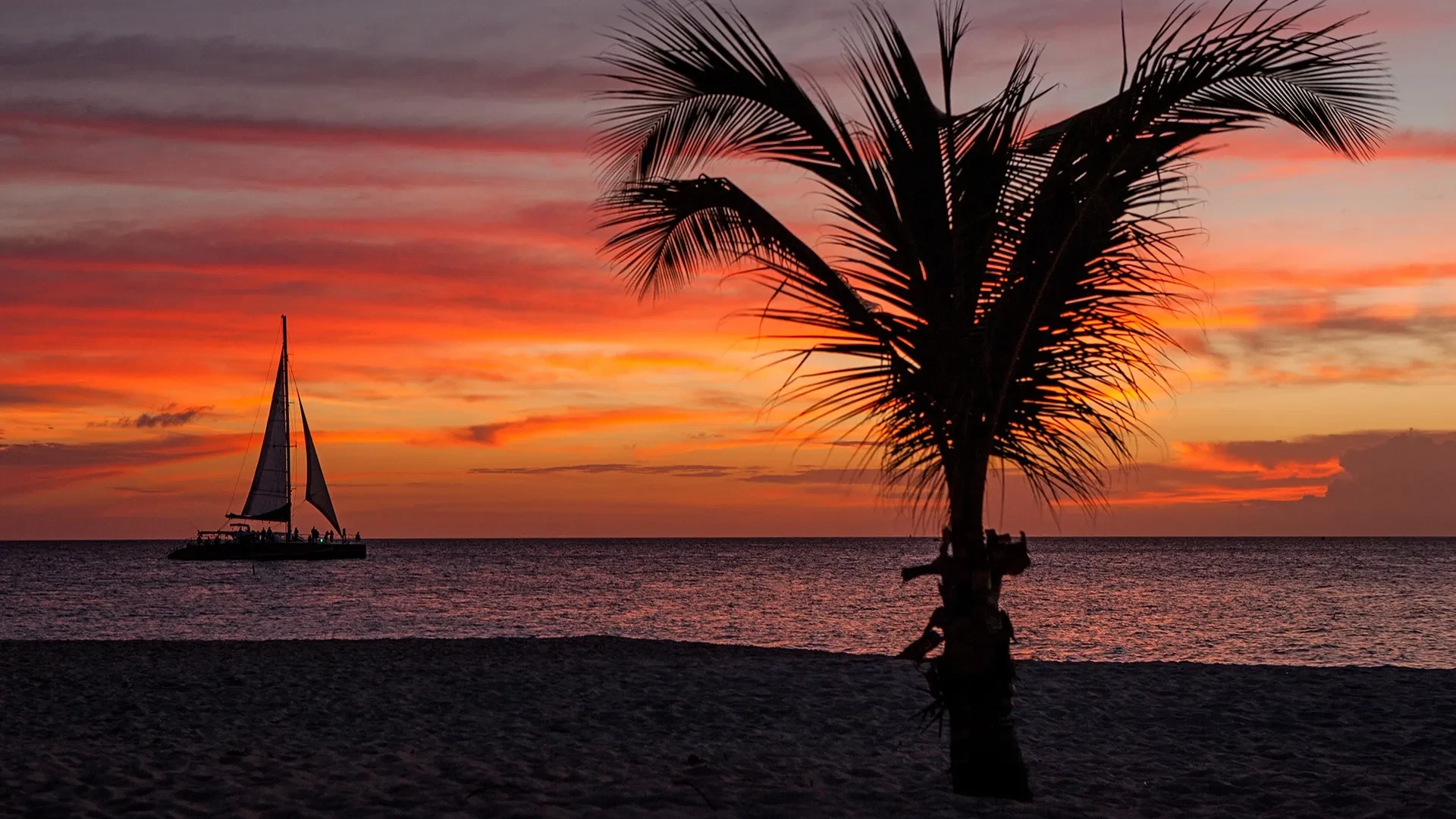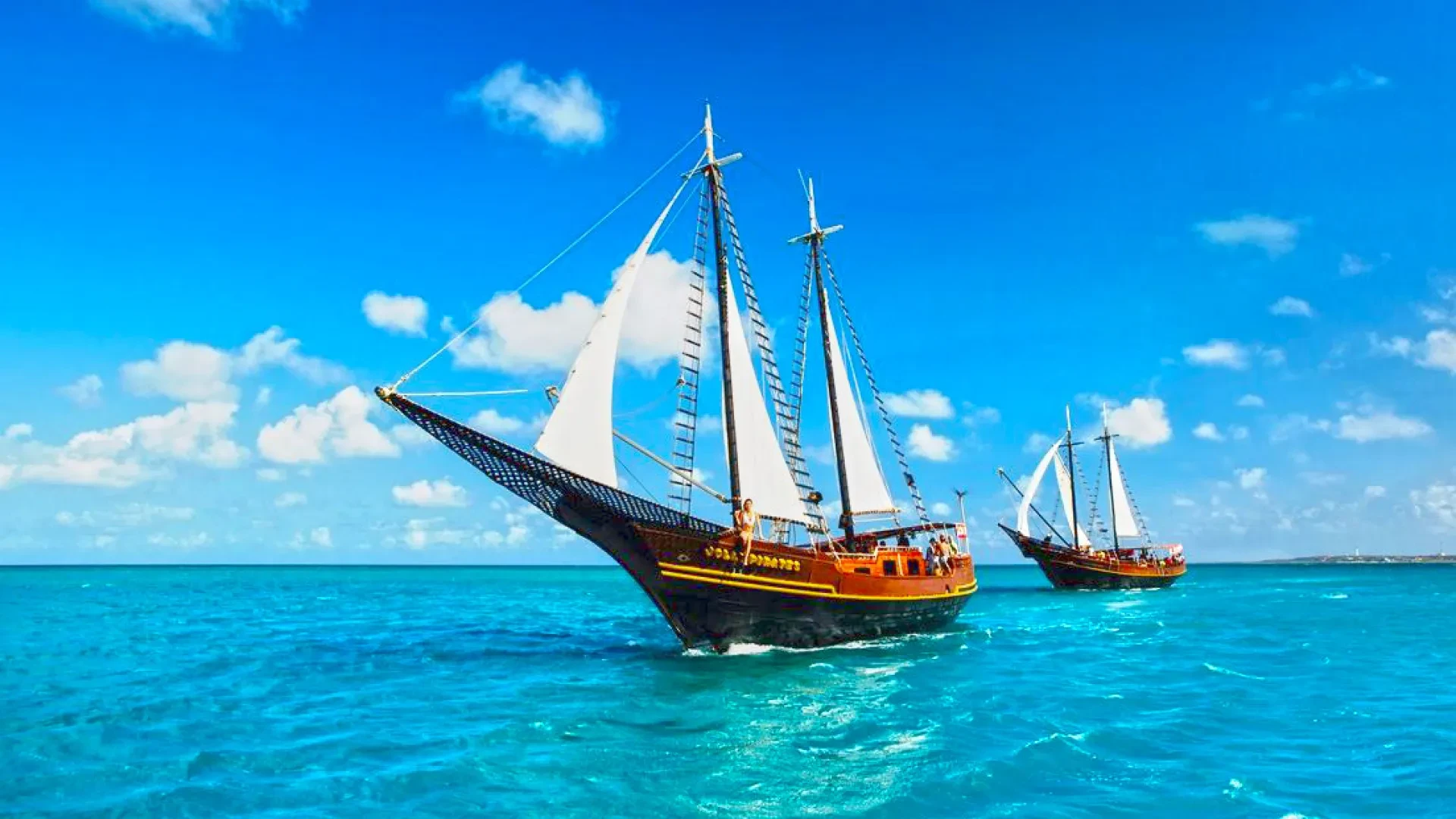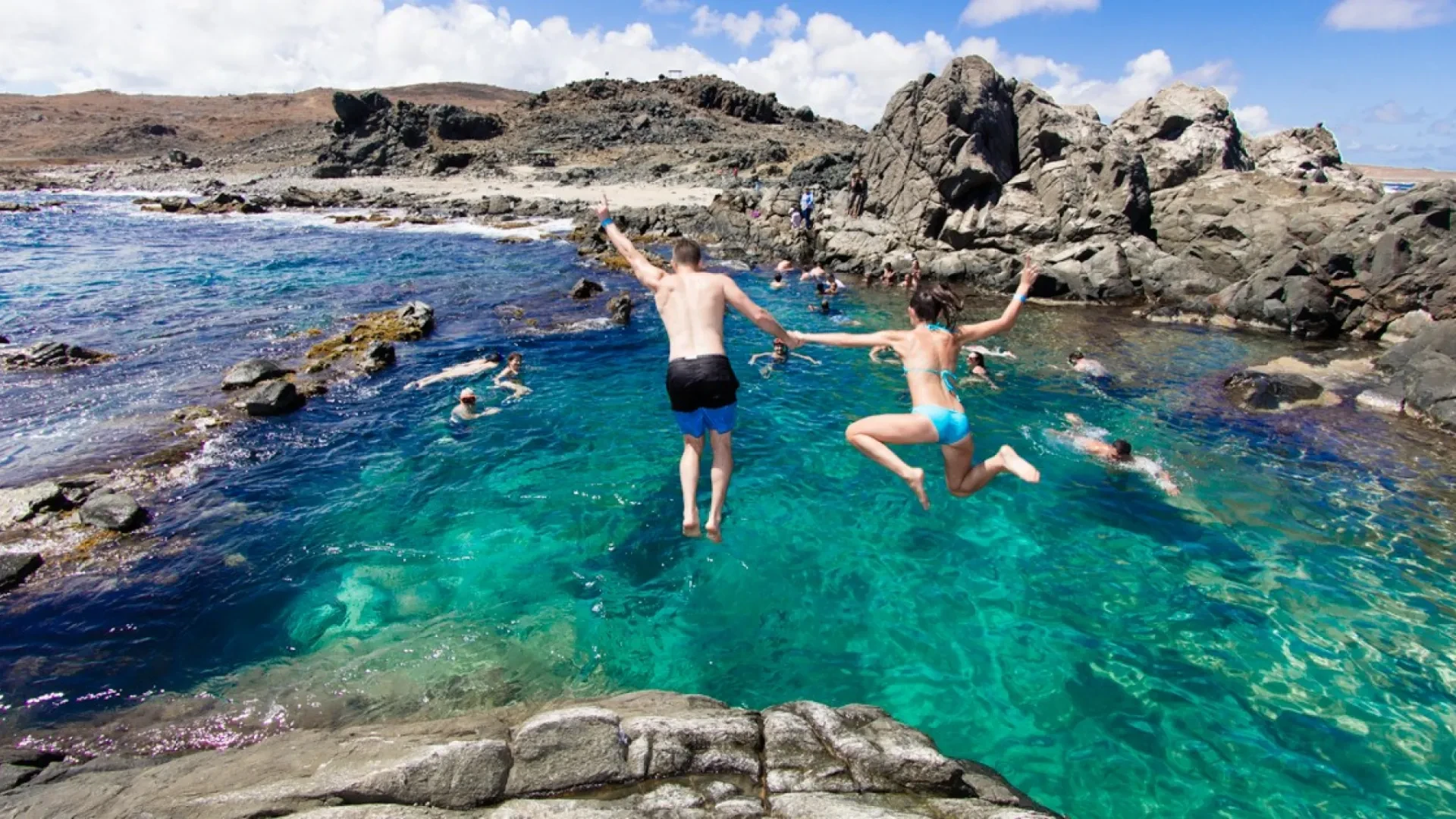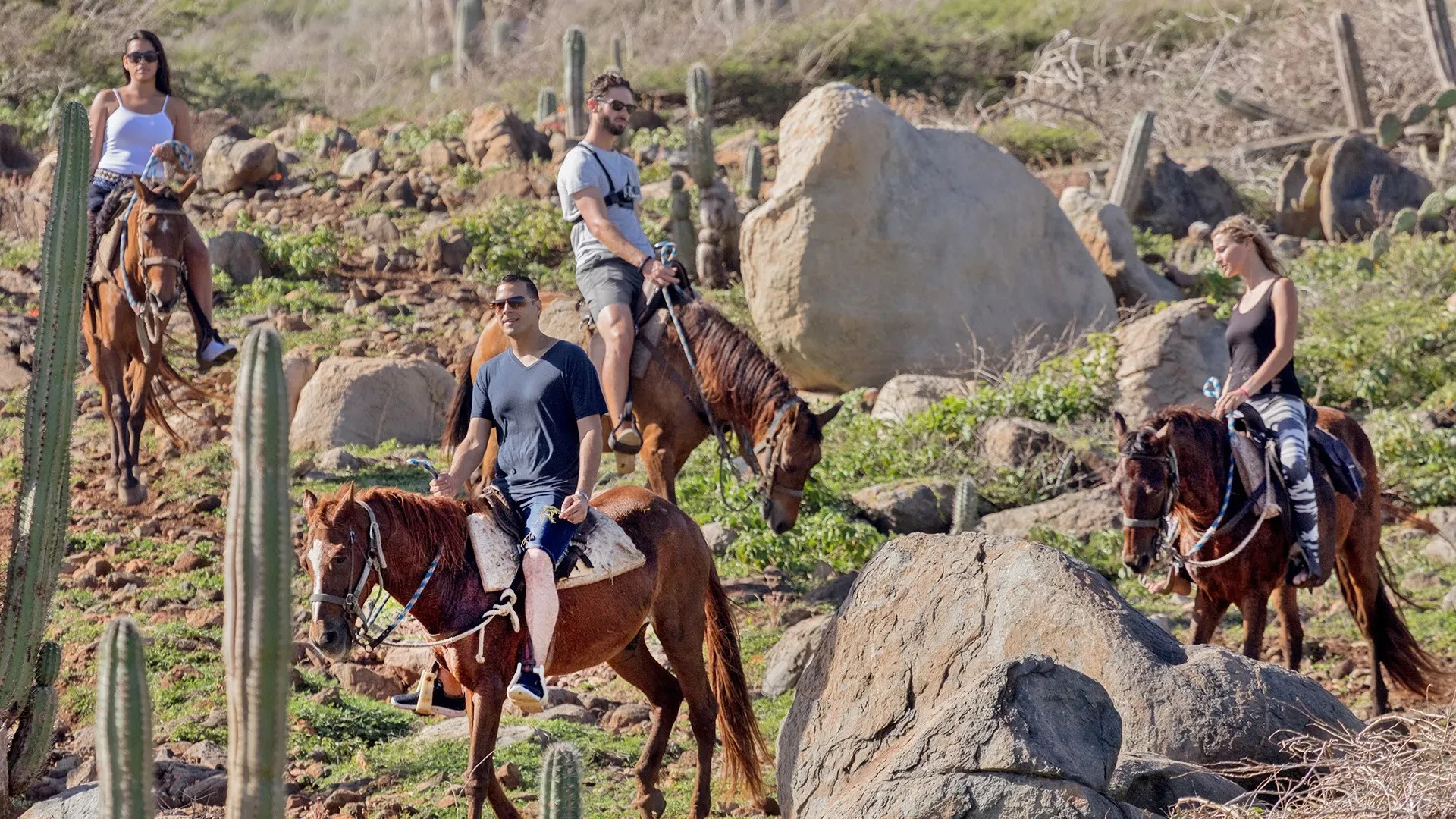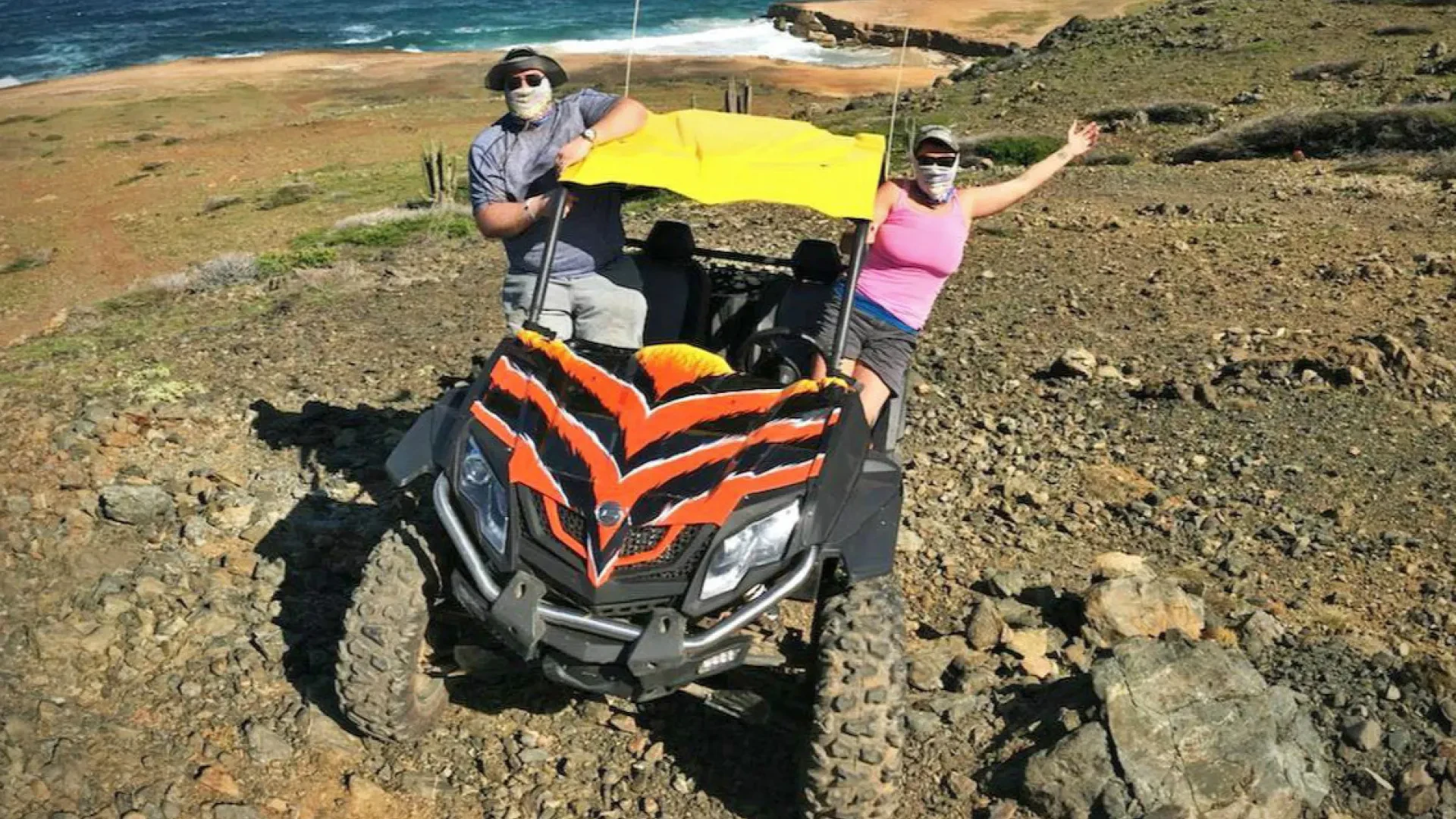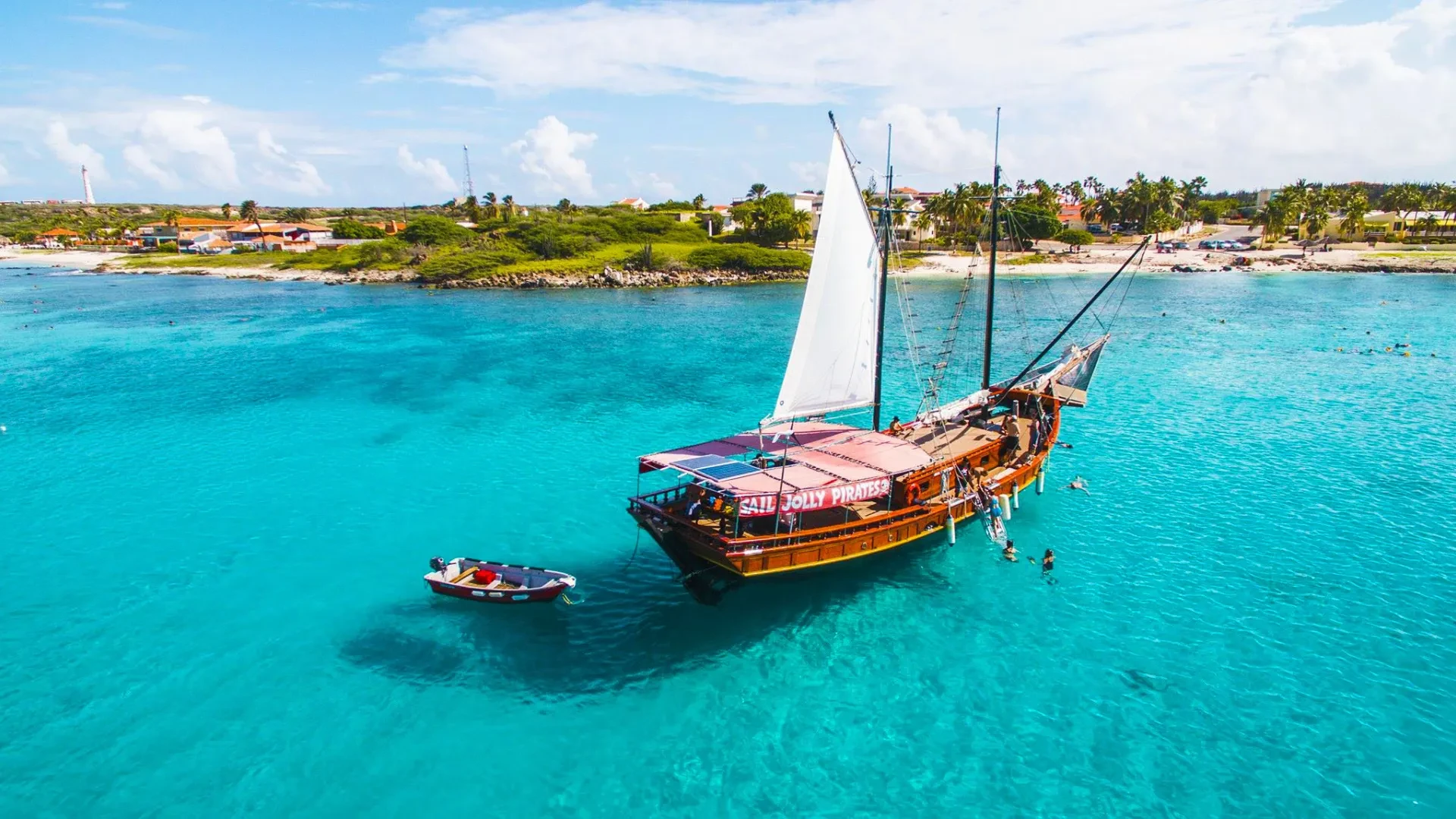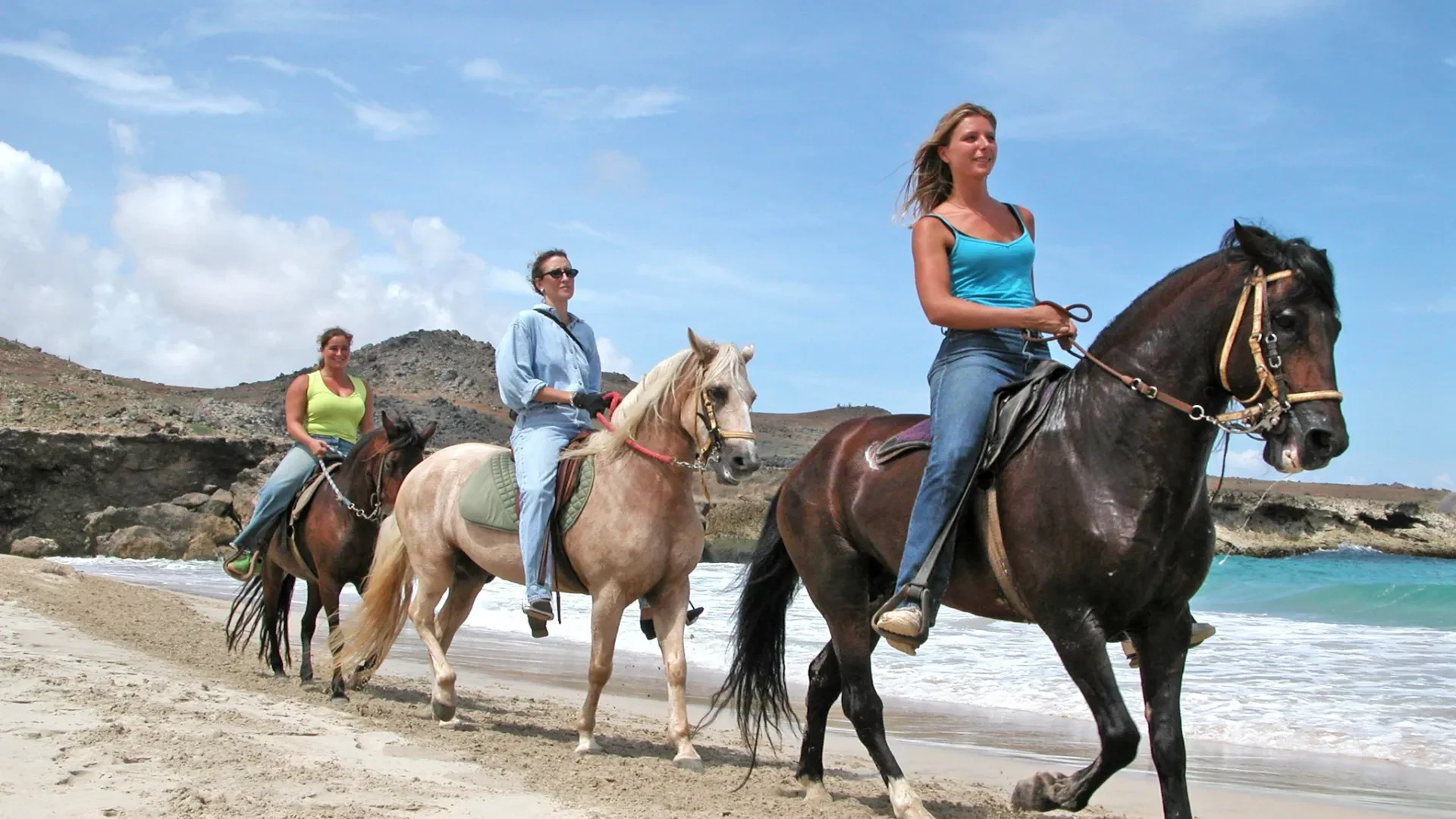Levente
September 01.
Been there. Done that.
Been there. Done that.
September 01.
Nicknamed the “One Happy Island,” Aruba sits just off the coast of Venezuela in the Southern Caribbean. Its desert-like climate, colorful Dutch-influenced architecture, and friendly locals speaking Papiamento language set it apart from other tropical destinations.
Whether you’re interested in Aruba travel tips, eager to explore Arikok National Park, or want to indulge in Aruban cuisine, there’s always something new to learn. Below is a comprehensive list of 69 interesting facts about Aruba for kids and adults alike - read on to discover why this sunny spot deserves a top spot on your travel bucket list in 2025.

Aruba is one of four constituent countries of the Kingdom of the Netherlands, along with the Netherlands, Curaçao, and Sint Maarten. Bonaire, Saba and St. Eustatius belong to the country of the Netherlands and not to the Kingdom of the Netherlands.

`Status Aparte`, which was achieved on January 1, 1986, grants Aruba its own government within the Dutch Kingdom.
Locals speak Papiamento, a unique Creole, which blends Portuguese, Spanish, Dutch, English, and African dialects. Besides this, most Arubans also speak Dutch, English and Spanish.

Featuring a lion for the Netherlands, aloe for agriculture, and a handshake for unity. Aruba's flag is light blue with a red, white-outlined star and two yellow stripes - celebrated yearly on Flag & Anthem Day (March 18).
Aruba is home to over 110,000 people - making it one of the more densely populated Caribbean islands relative to its size.
Three Dutch islands - Aruba, Bonaire and Curacao – form the ABC Islands, each with distinct characteristics.

The vibrant name of Aruba`s capital town translates to “Orange Town”, reflecting Aruba’s Dutch heritage.

You’ll see this joyful tagline everywhere; on license plates, souvenirs, and tourism campaigns. The slogan truly describes the spirit of Aruba.
Aruba ranks among the safest Caribbean islands, with low crime rates and a welcoming community.

Shark attacks in Aruba are almost unprecedented. The only incident happened to Venezuelan traders whose boat capsized in the open sea and while waiting for the Aruban coast guards, one of the men was fatally attacked by a (possibly) tiger shark.
Titled “Aruba Dushi Tera”, Aruba`s anthem praises the island’s beauty in the melodious Papiamento language.

You’ll see cacti and hardy shrubs rather than lush rainforests - truly unique for a tropical destination.

Aruba measures roughly 20 miles (32 km) long by 6 miles (10 km) wide, it’s easy to explore every corner in a short visit.

At 620 feet (188 m), Mt. Jamanota is the highest point of Aruba located in Arikok National Park. Mount Hooiberg is a tiny bit smaller at 540 feet (165 meters) but still offers amazing views and is easier to access.
Aruba’s climate averages around 82°F (28°C), offering sun-drenched days no matter when you visit. Aruba has the most sunny days of any island in the Caribbean.

On a clear day, you can see the hills of Venezuela which lies just 15 miles (24 km) away from Aruba.
Unlike many Caribbean neighbors, Aruba is usually outside major hurricane paths, adding to its appeal for worry-free travel.

Since the island belongs to the Kingdom of the Netherlands, local citizens have a Dutch passport.

Predominantly Catholic, Aruba is also home to Protestant, Jewish, and other communities, enriching Aruba culture and traditions.
For most locals, life moves at a laid-back pace in Aruba, ideal for disconnecting and embracing the relaxed Caribbean vibe.

Arubans are passionate about baseball, influenced by the sport’s popularity throughout the region.
Aruba competes in the Summer Olympics, especially in swimming and track events but has not won any medal yet.

While the U.S. dollar is widely accepted, the Aruban Florin (AWG) is Aruba`s official currency.

Aruba had a mini gold rush in the 19th century; you can still see little-known historical facts about Aruba’s gold rush era at sites like Bushiribana gold mine ruins.

Established in 1890, Aruba Aloe is one of the oldest aloe companies, emblematic of the island’s aloe cultivation heritage.

Some resorts in Aruba host 24-hour casinos for those who want to try their luck under the Caribbean stars. Gambling winnings don’t get taxed in Aruba.

Aruba's Lago Oil Refinery in San Nicolas used to be one of the largest in the Caribbean and the biggest one in the world during WWII. It ceased operation in 1985 but plans are underway to restart it.

Locals use tall cacti like kadushi and yatu as natural fences, which are sturdy and sustainable. The above picture of a cacti fence was not taken in Aruba, though, but Bonaire, but it looks good:)

Aruba is one of the cleanest islands in the Caribbean and among the first to completely ban plastic bags effective January 1, 2017.

Aruba’s buildings exhibit a whimsical fusion of Dutch colonial style and bold Caribbean hues.

Adorned with “One Happy Island,” Aruban license plates make fun souvenirs or photos for your travel album.

Aruba’s tap water is desalinated and among the purest you’ll find - no need for bottled water.

Aruba’s iconic sunset beaches draw couples from around the world to tie the knot in paradise.

Covering about 20% of Aruba’s land area, Arikok National Park offers rugged landscapes, caves, and hidden bays. Go on a guided tour or drive a 4x4 to see the best parts!

Aruba’s famous Natural Bridge collapsed in 2005, but a smaller “Baby Bridge” still stands nearby.

Explore Casibari and Ayo Rock Formations in Aruba for fascinating geology and ancient petroglyphs.

The legacy of the indigenous Arawak people of Aruba, visible in caves and rock sites across Arikok National Park.

Known for two sunlit chambers and a colony of harmless bats. It is truly an instagram-worthy location!

Fontein Cave is a well-preserved spot with indigenous drawings on its walls, offering a glimpse into the early history of Aruba.

Spanish Lagoon is a mangrove-rich ecosystem once used by pirates and explorers of Aruba - perfect for a peaceful kayak trip or snorkeling.

Named after a sunken steamship, California Lighthouse offers sweeping vistas of Aruba’s coastline - a highlight for photographers.

Eagle Beach and Palm Beach are consistently praised among the Caribbean’s and the world’s best beaches. They are famous for their miles-long soft white sand and turquoise waters.

A shallow, calm lagoon, ideal for families and beginner snorkelers. It used to be a quiet, uncrowded beach but recent hotel development will change this forever.

Dive sites in Aruba like the SS Antilla shipwreck attract scuba enthusiasts searching for sunken WWII treasures and it's also a popular snorkeling tour spot.

Strong trade winds near Hadicurari Beach fuel Aruba’s reputation as a wind and kite surfing hotspot.

A whimsical red windmill “De Olde Molen” near Palm Beach symbolizes Aruba’s Dutch heritage. It was constructed in 1961 and has been serving as a restaurant and a windmill museum since.

Booking a guided ATV or Jeep tour is a popular way to explore Aruba’s rocky trails, scenic cliffs, and hidden landmarks.

Look for secluded water pockets along the northern coast of Aruba- ideal for adventurous swimmers. The biggest and most famous one is the Conchi Natural Pool which is only accessible by 4x4.

Oranjestad’s port welcomes thousands of cruise ship passengers almost every day seeking a day of sunshine.

Aruba`s high-rise hotel area begins after Eagle Beach and hosts large global resorts along Palm Beach. There are also a lot more tourist activities that can be found here.

Indigenous Arawak roots blend with African, Dutch, and Spanish influences. However, today, due to the massive amount of US visitors, Aruba also shows signs of Americanization.

The Aruba Carnival is the biggest party season, which includes street parades, soca music, elaborate costumes, and endless dancing - one of the best ways to experience local life.

Held weekly in Oranjestad, the Bon Bini Festival showcases Aruban music, dance, and crafts. “Bon Bini” means “welcome” in Papiamento.

Brightly embroidered outfits and distinctive hats highlight Aruba culture and traditions during special events.

Borrowed from Trinidad and Tobago, steel pan music has become a Carnival mainstay in Aruba.
Soca, calypso, tumba, and danza styles - often accompanied by steel drums - create Aruba`s rhythmic heartbeat.

Keshi Yena is Aruba's signature meal featuring cheese stuffed with spiced meat, olives, and peppers - don’t miss it!

Looking for great seafood with an amazing ambiance? Head to Zeerover, an absolute must-visit venue in Aruba, which is also budget-friendly.

Cocada is a sweet coconut candy often sold at beaches and festivals in Aruba. Great for satisfying sweet cravings!

Aruba`s beloved Balashi beer is a refreshing choice after a day at the beach or in the desert.

Aruba Ariba is Aruba’s signature cocktail using an exclusive Aruban liquor called Coecoei.

If you only saw one picture of Aruba, it was probably the flamingos on the beach. They are not a native species, though, but they were brought in for entertainment on Renaissance Island and now on De Palm Island as well.

The Ostrich Farm in Aruba is an unexpected attraction where you can learn some interesting fun facts about these giant birds and even feed them.

Safeguarding the island’s wild donkeys, this sanctuary welcomes visitors for an educational experience.

Prikichi parakeet is the national bird of Aruba. It boasts bright green feathers and is cherished as a national symbol.

The Aruba Burrowing Owl or Shoco is one of the National Symbols of Aruba and an overall very cute bird.

The boa constrictor is not endemic to Aruba and causes a lot of damage to the ecosystem as it eats burrowing owl eggs.

A popular fun fact about Aruba is its trademark fofoti trees which are often mistaken for Divi Divi (watapana) trees. They are both permanently sculpted by strong trade winds, leaning southwest, but fofoti trees grow on the beach while Divi Divi trees sprout from the dirt across the island.

This beautiful wildflower, also called Wanglo, is the national flower of Aruba and it can be found on sandy soils along the coast and some open spots inland.
These 69 fun facts about Aruba make it a unique Caribbean destination. From iconic snorkeling and diving sites to rich Aruban culture and traditions, this One Happy Island offers a perfect blend of relaxation, adventure, and heritage.
Whether you’re drawn to the history of Aruba, its dynamic Aruba Carnival, or simply want to unwind on Aruba’s best beaches, it's good to know these interesting facts about the island, which illustrate why it’s among the top destinations in the Caribbean. So pack your sunscreen, brush up on a few words of Papiamento, and get ready to experience Aruba’s welcoming vibe firsthand.
Bon bini na Aruba - welcome to paradise!
Year-Round Sunshine: Aruba lies outside the hurricane belt, so it enjoys consistently warm, sunny weather.
Divi-Divi Trees: These iconic trees always bend southwest due to the constant trade winds.
Multi-Lingual Locals: Most Arubans speak four languages: Papiamento, Dutch, Spanish, and English.
Desert-Like Landscape: Unlike most Caribbean islands, Aruba has cacti, rocky terrain, and natural bridges instead of lush rainforests.
Dutch Influence: Aruba is part of the Kingdom of the Netherlands, but it has its own government and currency (Aruban Florin).
Arikok National Park: Covers nearly 20% of the island, featuring caves, rock formations, and hidden beaches.
No Uber or Lyft: Visitors rely on taxis, rental cars, or public buses to get around.
Flamingos on Private Islands: While not native, flamingos can be seen at Renaissance Island, a private beach accessible via a resort day pass.
Aruba Means “Red Gold”: The island’s name may come from the Spanish phrase Oro Ruba (red gold) due to its 19th-century gold rush.
Cacti Are Everywhere: Unlike most Caribbean islands, Aruba’s desert terrain is covered in towering cacti instead of lush forests.
World-Class Drinking Water: Aruba desalinates seawater, making its tap water among the cleanest in the world.
Home to Blue Lizards: Aruba has bright blue whiptail lizards that are unique to the island.
Casibari & Ayo Rock Formations: These massive boulders mysteriously appeared in Aruba’s otherwise flat landscape.
A Giant Bridge Collapsed: The famous Natural Bridge was one of the largest in the Caribbean before it collapsed in 2005.
The Island Was Once Uninhabited: When the Spanish arrived in 1499, Aruba had no permanent residents, just a few Arawak settlements.
Locals Celebrate Dera Gai: This traditional festival on June 24th involves singing, dancing, and celebrating the harvest.
Aruba’s Currency is Pegged to the U.S. Dollar: The Aruban Florin (AWG) has a fixed exchange rate, and U.S. dollars are widely accepted.
Aruba’s Black Stone Beach is One of the Island’s Hidden Gems: While Aruba is famous for its white-sand beaches, Black Stone Beach in Arikok National Park is covered with volcanic black pebbles and stones, making it a unique and lesser-known natural wonder.
No, there are no crocodiles in Aruba.
Aruba has a dry, desert-like landscape with cacti and bushes. The island receives some of the least rainfall in the Caribbean
Aruban cocktails often feature Palmera Rum, handcrafted in Oranjestad. Tourists love the coconut variety, while locals stay loyal to the original’s oaky sweetness and vanilla notes.
Another local drink in Aruba is ponche crema, an eggnog-like drink they usually drink around Christmastime.
Coecoei, a traditional Aruban liqueur, is a key ingredient in the renowned "Aruba Ariba" cocktail.
Although it is not a liquor but Aruba has its own beer called the Balashi Beer.

Creating this travel magazine takes an insane amount of time and money. If you’ve found it useful and would like to support me in helping other travelers like you, your donation would go a long way. Thanks, you’re the best!
